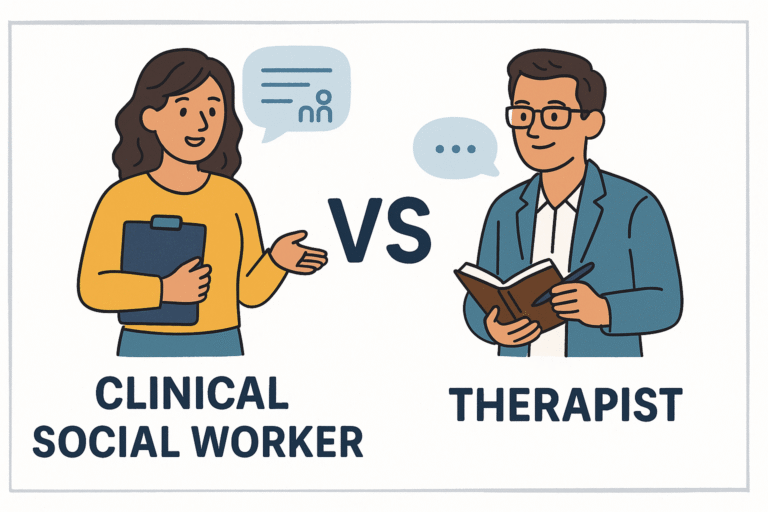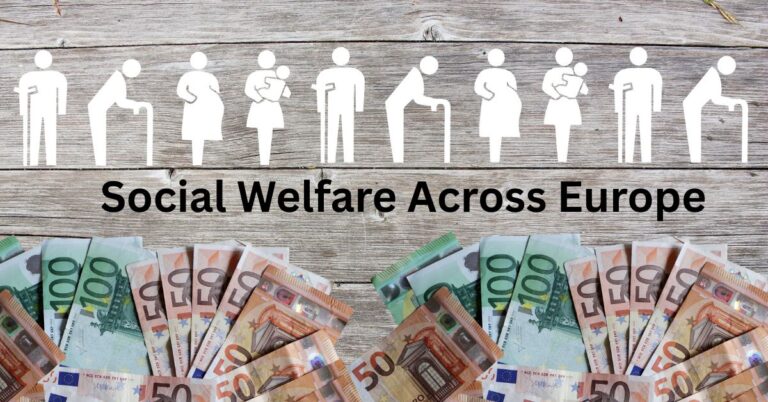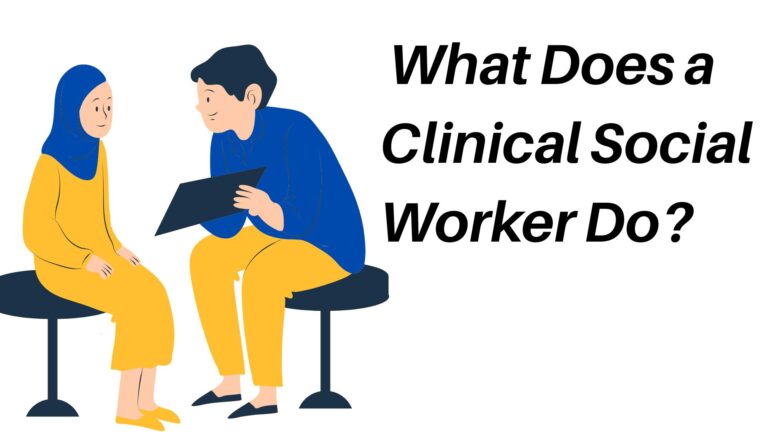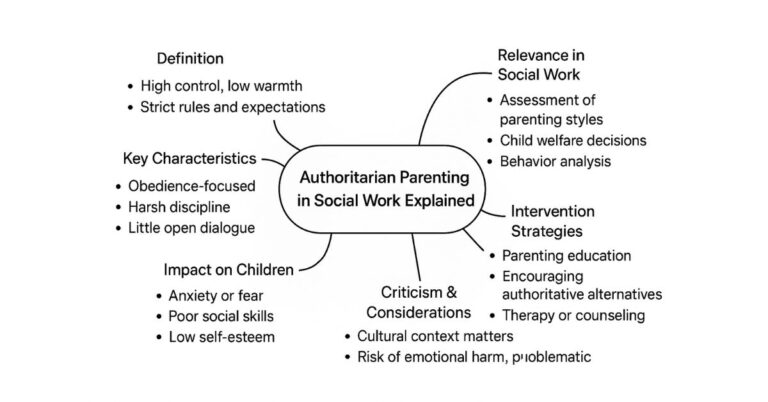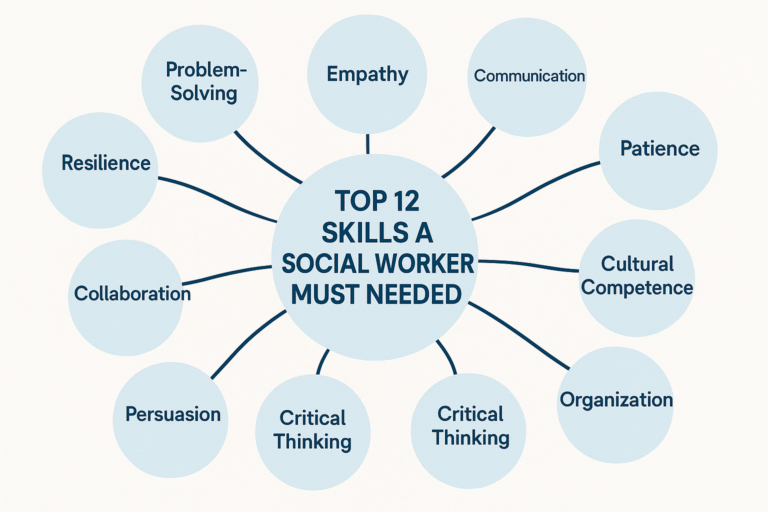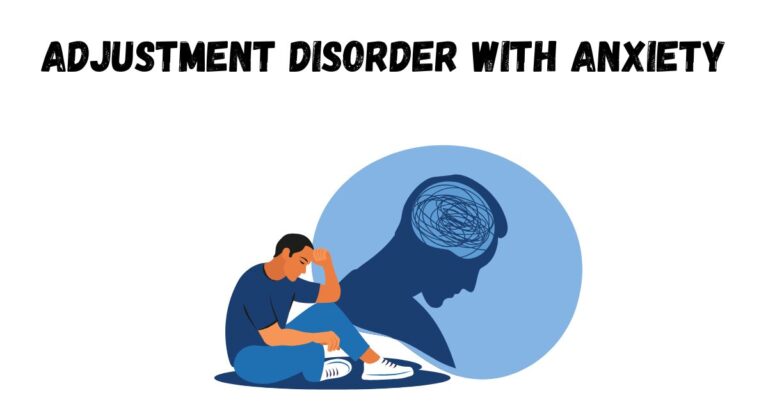Social Work Terms Crohn’s, Modeling, Neph, Ethnicity
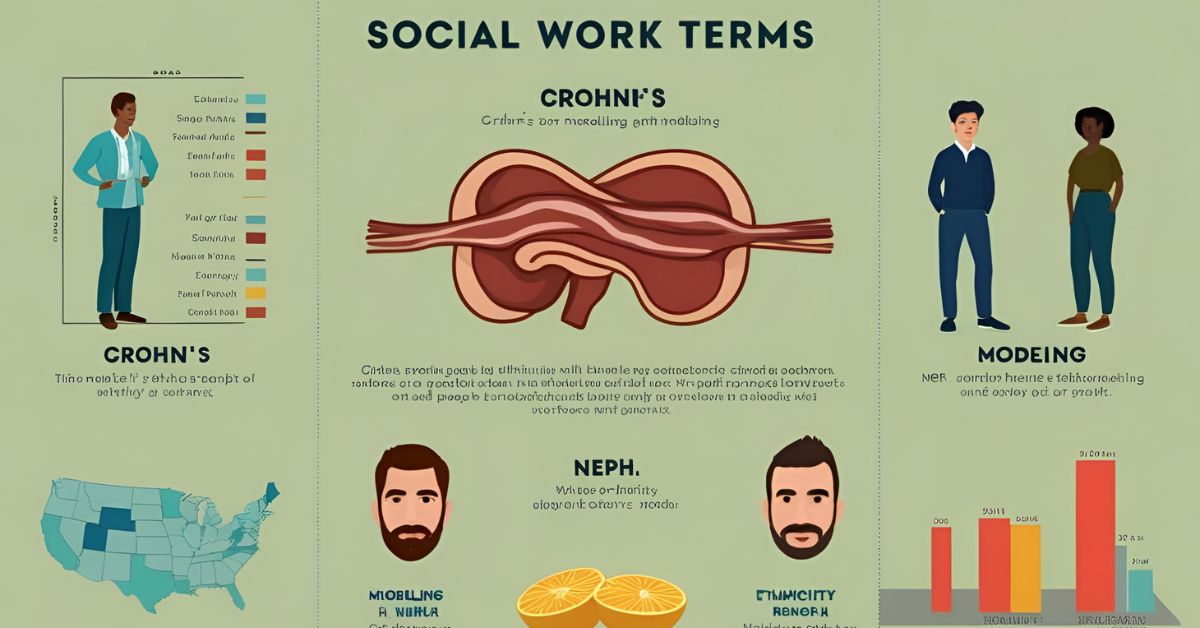
In social work, it’s important to understand not just feelings and relationships but also medical and cultural terms. Words like Crohn’s disease, modeling, neph, nephrolith, and ethnicity might sound complex, but they play a big role in how social workers support their clients.
This article breaks down each term in a simple, professional way and explains how they matter in the social work field.
Terms in Social Work
| Term | Meaning | Why It Matters in Social Work |
|---|---|---|
| Crohn’s disease | A chronic digestive illness | Helps social workers support clients with chronic pain and stress |
| Modeling | Showing good behavior for others to learn | Teaches children and clients healthy ways to act or speak |
| Neph | Relates to the kidneys (from nephrology) | Helps in understanding kidney-related health issues |
| Nephrolith | A kidney stone | Allows better support during medical treatments or emergencies |
| Ethnicity | A person’s cultural, national, or racial background | Builds respectful relationships by honoring the client’s background |
What Does Crohn’s Disease Mean in Social Work?
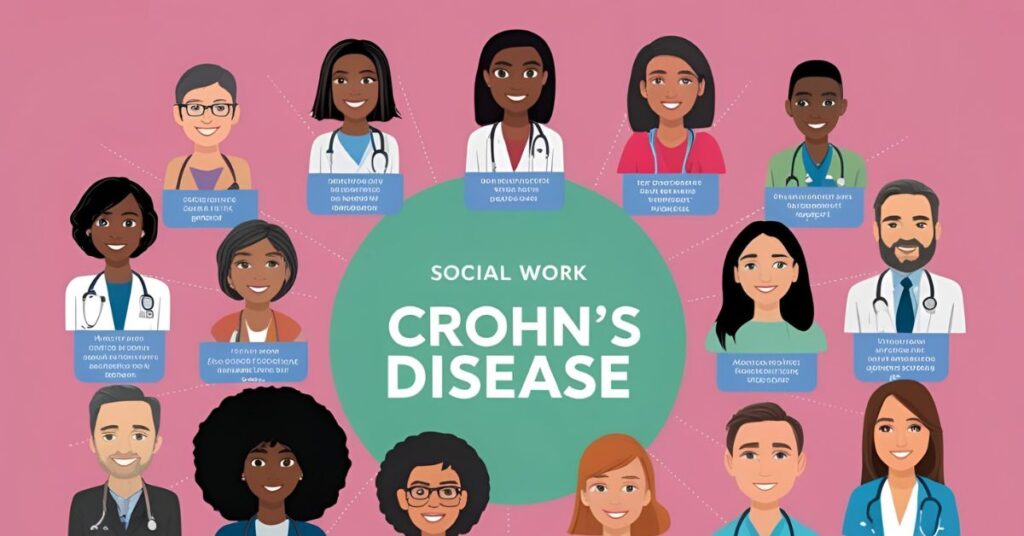
Crohn’s disease is a long-term condition that affects the digestive system. Clients living with Crohn’s disease may feel pain, anxiety, and stress from their symptoms.
In social work, professionals can help by:
- Assisting with medical appointments
- Explaining healthcare options
- Providing emotional support
- Connecting clients to chronic illness support groups
This support improves the client’s quality of life and makes healthcare more manageable.
What Does Modeling Mean in Social Work?

Modeling means teaching through example. Social workers use modeling to show helpful ways to:
- Solve problems calmly
- Express feelings respectfully
- Cooperate with others
Children, teens, and even adults learn by watching others. When a social worker listens patiently or solves a conflict respectfully, clients often pick up those habits too.
What Does Neph Mean in Social Work?
The term neph comes from “nephrology,” which means the study of kidneys. In medical social work, you might hear doctors say “neph consult” or talk about neph conditions.
Social workers who understand this term can:
- Help clients understand kidney issues
- Support them through dialysis or treatments
- Coordinate care between health teams
Knowing neph means being able to speak the client’s language and their doctor’s.
What Does Nephrolith Mean in Social Work?
Nephrolith is a medical term for a kidney stone. These can be very painful and may require hospital visits.
Here’s how social workers help:
- Support clients through fear or anxiety about treatment
- Explain medical instructions in simple terms
- Help with discharge planning or follow-up care
Understanding nephrolith helps social workers provide full, empathetic care during health crises.
What Does Ethnicity Mean in Social Work?
Ethnicity refers to a person’s cultural background, traditions, language, and sometimes religion. In social work, recognizing a client’s ethnicity is a key part of cultural competence.
Social workers use this knowledge to:
- Avoid stereotypes or assumptions
- Understand the client’s values and needs
- Offer services that fit cultural preferences
- Create a welcoming, respectful environment
Good social work is inclusive. Respecting ethnicity helps build trust and better outcomes.
FAQs
Why do social workers need to understand medical terms like “Crohn’s” or “neph”?
A: Because clients often deal with health issues. Knowing these terms helps social workers give better care and communicate with medical staff.
What is the role of modeling in child social work?
A: Social workers use modeling to teach behavior like patience, calm talking, and empathy by showing it themselves.
How does ethnicity affect social work practice?
A: It helps social workers give care that respects the client’s cultural values and avoids misunderstandings.
Terms like Crohn’s disease, modeling, neph, nephrolith, and ethnicity may sound technical, but they’re part of real people’s lives. For a social worker, understanding these words helps provide whole-person care emotional, cultural, and medical.

